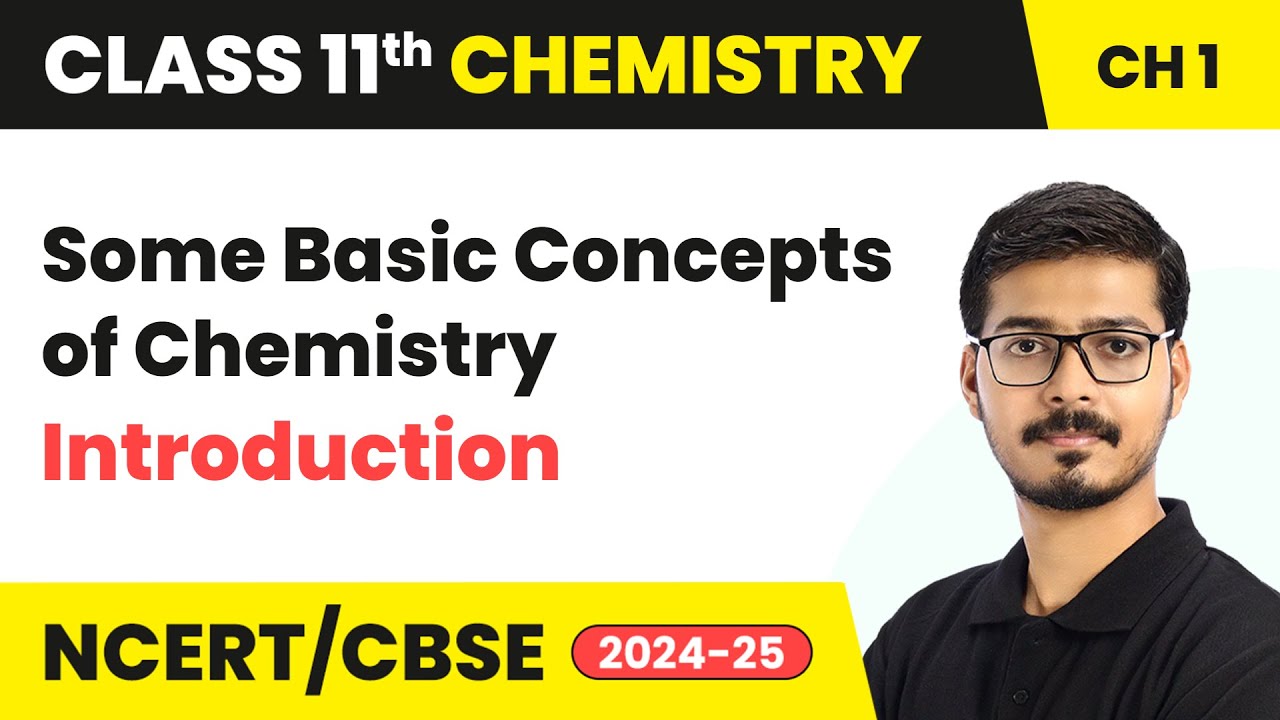What is Chemistry? 5 Branches of Chemistry
Summary
TLDRThis script delves into the complex nature of chemistry, often perceived as a disorganized amalgamation of topics. Despite its seemingly chaotic structure, chemistry is revealed as the 'Central Science,' interlinking with various disciplines like biology, geology, and astronomy. The video emphasizes the historical roots of chemistry, from ancient alchemy to the scientific method, and underscores its foundational role in understanding the world at a molecular level. It also outlines the five main branches of chemistry and their significance, encouraging viewers to appreciate chemistry's broad applications and interconnectedness with other sciences.
Takeaways
- 🧪 Chemistry is often perceived as a disorganized subject, encompassing a vast array of topics from the composition of matter to various types of reactions and energy changes.
- 📚 Despite its complexity, chemistry is not a young science; it has roots dating back to ancient civilizations, with historical periods like the Iron and Bronze Ages named after metallurgical advancements.
- 🔮 Alchemy, with its mystical and philosophical underpinnings, represents an early form of chemistry, where practitioners sought to understand and transform matter, including the pursuit of the Philosopher's Stone.
- 🌐 Chemistry is foundational to many disciplines and is aptly called 'The Central Science', connecting fields like physics, biology, geology, and astronomy through the study of matter and its interactions.
- 🔬 The importance of chemistry is underscored in advanced studies of biology, where a lack of chemical knowledge can impede a deep understanding of biological processes and molecules.
- 🌌 In astronomy, chemistry is crucial for understanding the composition of stars and celestial bodies, with spectral lines being a key tool for identifying elements and molecules in space.
- 🌋 Geology, at its core, is intertwined with chemistry, as rocks and minerals are chemical in nature, and the study of their formation, erosion, and interaction with the environment is inherently chemical.
- ⚙️ Engineering, particularly in the development of new materials and energy solutions, relies heavily on chemical knowledge to innovate and solve complex problems.
- 🔬 The interdependence of physics and chemistry is highlighted, with a strong foundation in physics being beneficial for understanding chemical phenomena and vice versa.
- 📈 The branches of chemistry include Organic, Inorganic, Physical, Analytical, and Biochemistry, each with its own focus but with significant overlap and interconnectedness.
Q & A
Why did the speaker find chemistry disorganized during their studies?
-The speaker found chemistry disorganized because it seemed like a collection of random, unrelated topics, unlike subjects like math or physics which have a more structured approach.
How does the lack of a textbook and multiple professors affect the speaker's perception of chemistry?
-The lack of a textbook and the input from multiple professors, each emphasizing different aspects, contributed to the speaker's feeling of disorganization and lack of a clear structure in chemistry.
What is the historical evidence that suggests chemistry is not a young science?
-Chemistry is not a young science because historical advancements in metallurgy, such as the Iron Age and Bronze Age, as well as the ancient Greeks' four elements theory and the practices of alchemists, indicate a long-standing study of chemical processes.
What was the role of alchemists in the early development of chemistry?
-Alchemists played a significant role as early chemists, seeking to understand and manipulate matter, with goals such as creating the Philosopher’s Stone for eternal life and transmuting base metals into gold.
Why do we have limited knowledge about the earliest alchemy texts?
-We have limited knowledge about the earliest alchemy texts because most were lost when the Great Library of Alexandria burned down in 391 AD.
How did the term 'chemistry' evolve linguistically from its ancient Egyptian roots?
-The term 'chemistry' evolved from 'Khem' (black land), the name Greeks gave to Egypt, to 'al-Khemia' by the Arabs, and eventually to 'alchemy' and modern 'chemistry' as the practice spread to the West.
What is the significance of the 'Philosopher’s Stone' in alchemy?
-The 'Philosopher’s Stone' was significant in alchemy as it was believed to grant eternal life and the ability to transmute base metals into gold, symbolizing the perfection of matter.
Why did the speaker refuse to accept students without a chemistry background in their advanced biology class?
-The speaker refused to accept students without a chemistry background because a significant portion of the class content was chemistry-related, particularly biochemistry, which is essential for understanding biological processes.
How does chemistry earn the title 'The Central Science'?
-Chemistry is called 'The Central Science' because it connects to many other disciplines, providing foundational knowledge necessary for a deeper understanding of fields like biology, geology, and astronomy.
What are the five main branches of chemistry mentioned in the script?
-The five main branches of chemistry mentioned are Organic Chemistry, Inorganic Chemistry, Physical Chemistry, Analytical Chemistry, and Biochemistry.
Why is it recommended to study physics before chemistry according to the speaker's suggested science study plan?
-The speaker recommends studying physics before chemistry to establish a basic understanding of concepts that help explain chemical phenomena, as chemistry relies heavily on physical laws and principles.
Outlines

هذا القسم متوفر فقط للمشتركين. يرجى الترقية للوصول إلى هذه الميزة.
قم بالترقية الآنMindmap

هذا القسم متوفر فقط للمشتركين. يرجى الترقية للوصول إلى هذه الميزة.
قم بالترقية الآنKeywords

هذا القسم متوفر فقط للمشتركين. يرجى الترقية للوصول إلى هذه الميزة.
قم بالترقية الآنHighlights

هذا القسم متوفر فقط للمشتركين. يرجى الترقية للوصول إلى هذه الميزة.
قم بالترقية الآنTranscripts

هذا القسم متوفر فقط للمشتركين. يرجى الترقية للوصول إلى هذه الميزة.
قم بالترقية الآنتصفح المزيد من مقاطع الفيديو ذات الصلة

5 Unobvious Signs You're Attractive (Backed up by Science)

Introduction - Some Basic Concepts of Chemistry | Class 11 Chemistry Chapter 1 | CBSE 2024-25

Medieval Lives (8 of 8) The King

Introduction to Complexity: Introduction to the Study of Complexity

Sistemi omogenei, eterogenei, sostanze pure e miscugli - Trasformazioni fisiche p.1

Treatment of indene with `NaNH_(2)` forms its conjugate base in a Bronsted-Lowry acid-base reaction
5.0 / 5 (0 votes)
